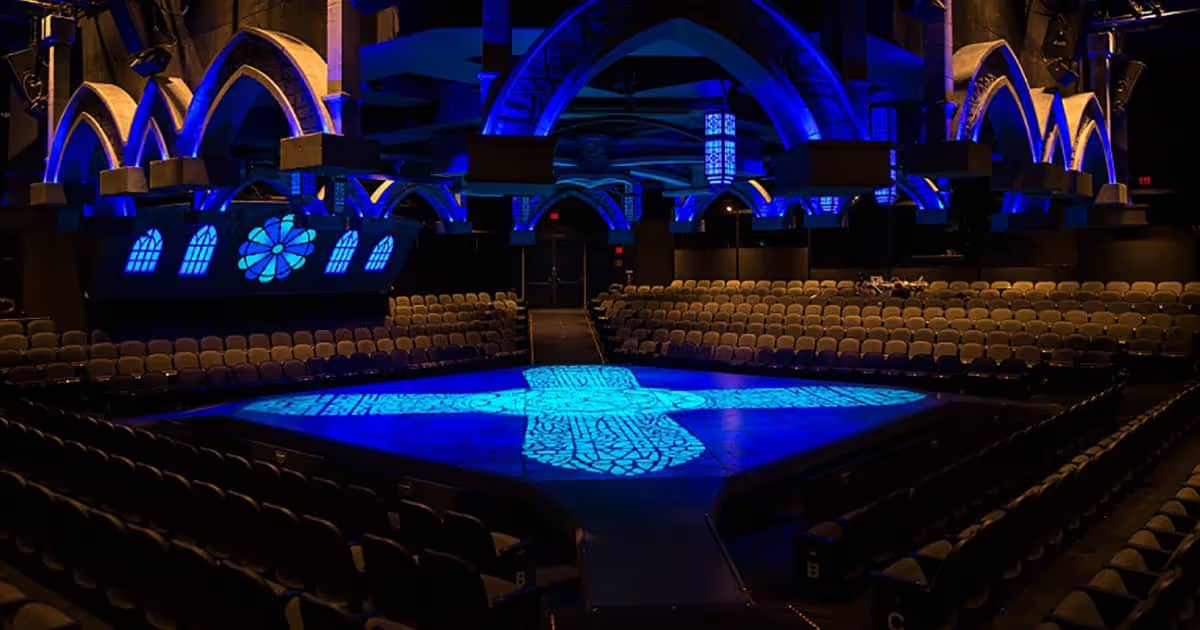At the Marriott's classic 'Oklahoma!,' memories of the the prairie surround us
★★★
From Jimmy Buffett to the cast of “Frozen,” all kinds of people have been warbling ditties from “Oklahoma!” these last few days. It’s all been part of an ongoing celebration of this groundbreaking musical’s 75th anniversary — a musical which, based on the evidence Thursday night at the Marriott Theatre in Lincolnshire, retains a singular capacity to move and delight the American people of the Middle West.
The gurgles of pleasure Thursday began with the overture.
The designers Kevin Depinet and Anthony Churchill have come up with a circular projection at the rear of this theater in the round, here used to create a sense of endless flat land, of flowers on the prairie where the June bugs zoom, of the possibilities of pasture. It’s not cutting-edge technology — it reminded me of the old display in the visitor’s center in Gettysburg, Pa. — but it’s done well, and it has not been done here often.
The ribbon became visible as the orchestra struck up a new set of orchestrations with more of a country flavor — heavier on the acoustic guitar and fiddles — and it connected one slice of statehood prairie in one time to another on the brink of becoming a territory. All around me, arms snaked around the backs of partners.
“You know we belong to the land,” they sing, problematically, since, as Tracy Letts noted in another play about Oklahoma, the land did not even remotely belong to these settlers. But even the censorial tend to let that pass with “Oklahoma!,” a musical about the feeling that you are at one with your environment, whatever the truths of history. The appeal of this show has a lot in common with the appeal of “The Wizard of Oz” — both are mythologies of the heartland. Both touch the souls of ordinary people.
This is true of the Richard Rodgers and Oscar Hammerstein classics in general. I’ve seen “South Pacific,” “Carousel” and “Oklahoma!” all within a couple of weeks — two in Chicago and one in New York — and, over all those hours, have been reminded anew of how forward-thinking these shows always have been. Directors tend to think they are updating them, or somehow changing their focus, but the reality is that they are all about life’s most important transitions — our birth, our need for partnership of our choosing and our death — and they’ve always accommodated any and all shifts in that waving American wheat.
Director Aaron Thielen’s production is modestly scaled, which lends it a genuine intimacy, rather as if he had shrunk the theater. Jennie Sophia is a resonant Laurey — quite introspective as Laureys go — and that aids the crucial emotional trajectory of the piece as a young woman on the cusp of adulthood comes to her senses after her curiosity about Jud Fry, who is played here with admirable realism and hunger by Shea Coffman, a huge asset to this show. Brandon Springman, who plays Curly, is charming and vulnerable, you feel that the Laurey in front of you will be happy with him, as you must for the show to work...
...The best comedy of the night comes from Michelle Lauto, now a red-headed Ado Annie, and her partner in crime, Will Parker, most charmingly played by Aaron Umsted. I’ve long thought Lauto to be a Broadway-quality performer who just needs the right chance, and her sophisticated vocal treatment of Ado Annie’s comic songs make that only more clear. It’s funny and it’s dignified. No mean feat.
Alex Sanchez’s choreography does not overwhelm or strike out for new earth; rooted in social dance, it is closer to the movement of ordinary people than you usually find in “Oklahoma!” Sanchez sometimes demurs, narratively speaking, but he’ll still help you walk out the door, into a parking lot paved on a prairie, feeling like there’s something meaningful in the flat lands.











